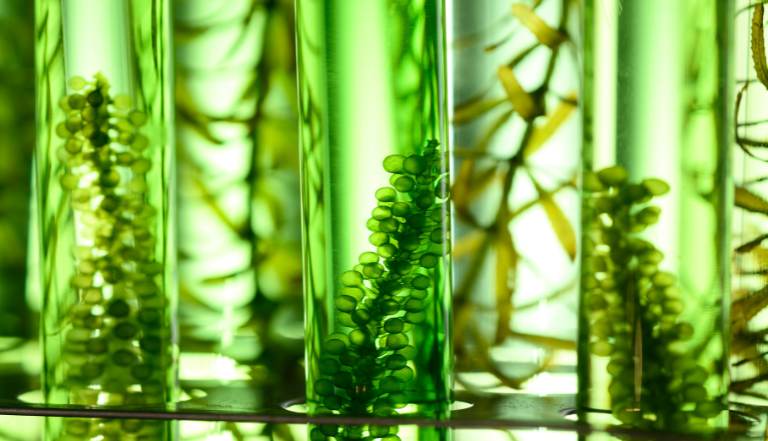Did you know that the word orangutan derives from the Malay language where “orang hutan” literally means “man of the forest”? You might wonder how this links to biofuel and to exciting Cambridge start-up HutanBio. But the word “hutan” is used in the same way in HutanBio’s company name, a reference to their use of algal “forests” to make biofuel.
The goal of becoming independent of fossil fuel raw materials – defossilisation - is one of the biggest challenges scientists face today. We currently rely on fossil fuel feedstock to provide the raw materials for a vast array of industries, including agriculture and food, plastics and other synthetic materials, consumer goods and electronics, and, of course, energy. We urgently need to replace fossil carbon sources with alternatives as part of our response to climate change.
Biofuels have long been touted as a possible solution. These encompass a range of compounds, though research efforts have focussed primarily on bioethanol, typically from crops such as corn or sugar; biogas from crops, and food and animal waste; biomethanol from, e.g. straw and manure; and, of particular interest, algal fuel. The advantage of algal fuel over most other types of biofuel is that it does not require the use of agricultural land, fresh water, or food crops.
The idea of using algae to make fuel is, in fact, very old. Presumably driven by the oil embargo in place at the time, the US initiated a program as long ago as 1978 with the goal of developing a biofuel using algae. The programme ran until 1996, but was then ended due to budget pressure, with fossil fuel derived oil still being significantly cheaper. The Guardian reports that major oil companies have also tried and failed to make a commercial success of algal biofuel. One key issue identified in this article is finding or developing algae that can make enough oil to economically compete with fossil fuels, albeit the balance of this equation is likely to change.
Enter stage right, Cambridge start-up company, HutanBio. They were formed 10 years ago by Dr John Archer of Cambridge University, Noor Azlin Mokhtar, originally a Cambridge PhD student, and Suhaiza Ahmad Jamhor. HutanBio believe they have found the one in a (not million, but) trillion alga that can make sufficient oil to form the basis of a commercially viable process.
According to their website, HutanBio prospected algae off the coast of Malaysia for seven years on a floating lab, testing over a trillion sample colonies and whittling them down to the 80 which performed best against their predetermined criteria. Whether HutanBio have since genetically modified any of those algae is unclear, but they believe they now have at least one alga that can transform the production of biofuel! Even more remarkably, the oil produced is said to be a drop-in replacement for long-distance transportation fuel.
Little information is in the public domain on HutanBio’s technology, but we understand their green alga, in the presence of salt water, efficiently photosynthesises CO2 into fuels (presumably “yellow” lipids) in bioreactors (We enjoy the mirroring of this process in their green-blue-yellow trademark). This technology potentially harnesses all those advantages identified so long ago: use of CO2 as a carbon source, thereby avoiding utilisation of food crops, deforestation and use of arable land. In fact, HutanBio believe their technology can be implemented in deserts and barren land, or alternatively adjacent to CO2 producers, such as cement works.
The Clean Growth Fund clearly believe HutanBio might have cracked the problem that governments and oil corporates failed to solve. They have recently invested £2.25m in HutanBio saying that: “we know that the use of algae has long been recognised as a promising source of biofuel and for varying reasons many companies have failed to successfully commercialise, but the scientific rigor of HutanBio, the qualities of HBx and the market opportunities it has in the shipping and aviation sectors in particular gives Clean Growth Fund cause for great celebration to support the company’s future growth”.
We have picked HutanBio as one of our Racing Ahead companies because they seem to be on track towards commercialising a technology that will help achieve defossilisation, which is probably the biggest conundrum we face today. We also like the fact that their name is (sort of!) from orangutan!



